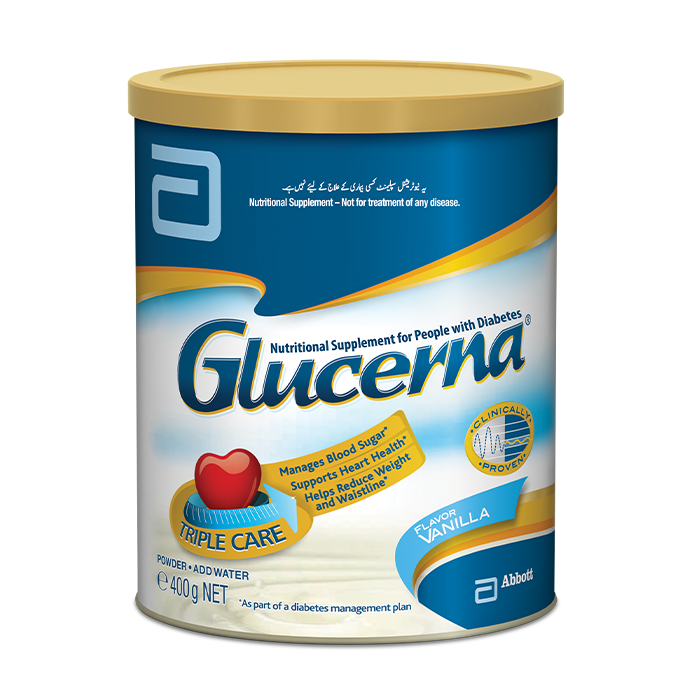Glucerna Powder
- Main Image
-

- Subtitle
- For Steady Energy And Glycemic Control
- Title
- Glucerna® Powder
- Detail Page Path
A balanced diet rich in nutrients and low in unhealthy fats and sugars is essential for managing diabetes.
Engaging in regular exercise helps control blood sugar levels and improves overall health.
Consistent monitoring of blood glucose levels and adherence to prescribed medication is crucial for effective diabetes management.
The Aim of Managing Diabetes
The goal of managing diabetes is to maintain blood sugar levels as close to your individual 'target' range as possible to prevent complications. Your healthcare provider will establish a personalized blood glucose target range for you, which may vary from the targets set for others with diabetes.2,3 Achieving blood glucose levels within this target range typically involves a combination of lifestyle modifications and medication.
Balanced Diet and Nutrition
A balanced diet is the cornerstone of diabetes management. Here are some key components of a diabetes-friendly diet:
Regular Physical Activity
Physical activity is vital for managing diabetes. Here are some tips for incorporating exercise into your routine:
Routine Monitoring and Medication
Regular monitoring of blood glucose levels is essential for managing diabetes. Here’s how to stay on top of it:
Effective diabetes management involves a combination of a balanced diet, regular physical activity, and routine monitoring of blood glucose levels. By adopting these strategies, you can maintain optimal blood sugar levels, improve your overall health, and reduce the risk of diabetes-related complications. Commit to these lifestyle changes and work closely with your healthcare team to manage your diabetes effectively.
References
1. Better Health Channel. Diabetes. Available at: https://www.betterhealth.vic.gov.au/health/conditionsandtreatments/diabetes.
2. Diabetes Australia. Managing type 2 diabetes. Available at: https://www.diabetesaustralia.com.au/managing-diabetes/type-2/. Accessed May 2023.
3. Diabetes Australia. Blood glucose level range. Available at: https://www.diabetesaustralia.com.au/managing-diabetes/blood-glucose-range/. Accessed May 2023.
4. National Diabetes Services Scheme. Your diabetes annual cycle of care fact sheet. Available at: https://www.ndss.com.au/about-diabetes/resources/find-a-resource/your-diabetes-annual-cycle-of-care-fact-sheet/.
ANI-PAK-MN-2024-4476
Stay Connected